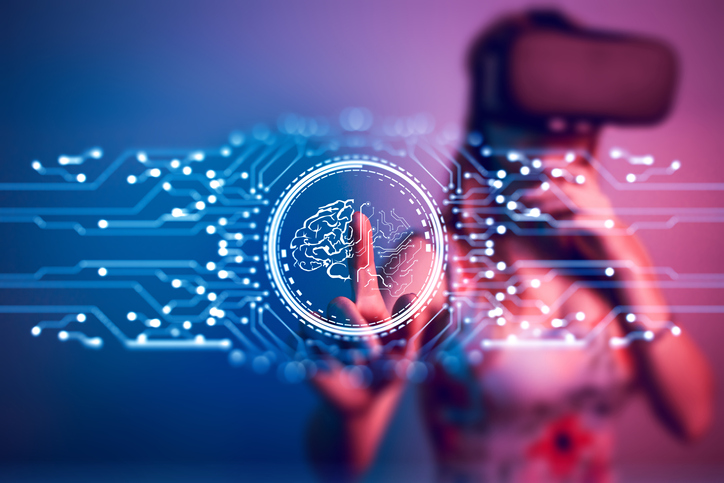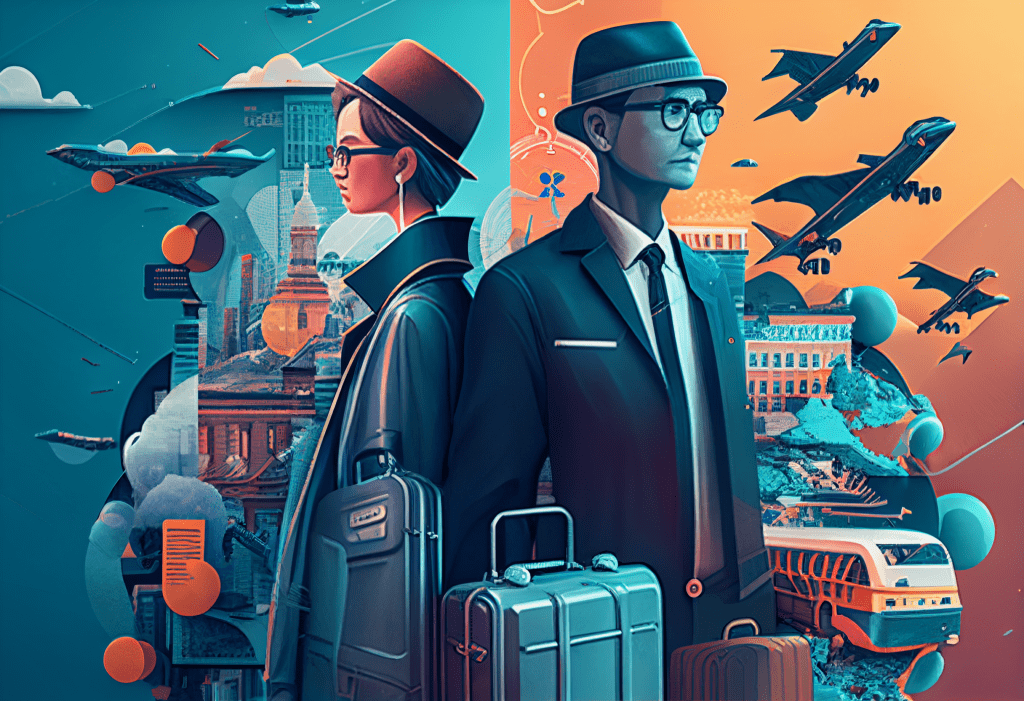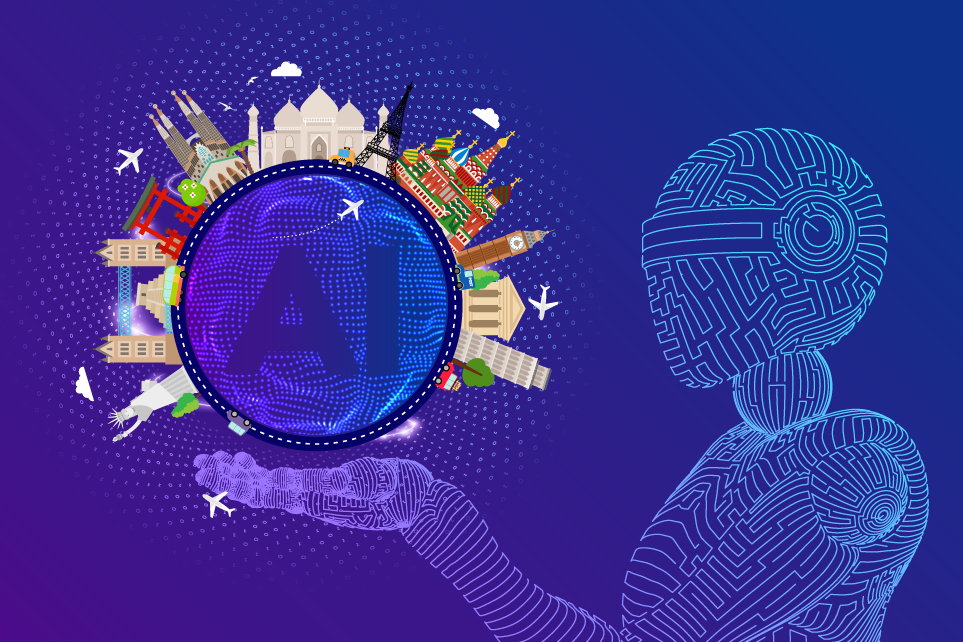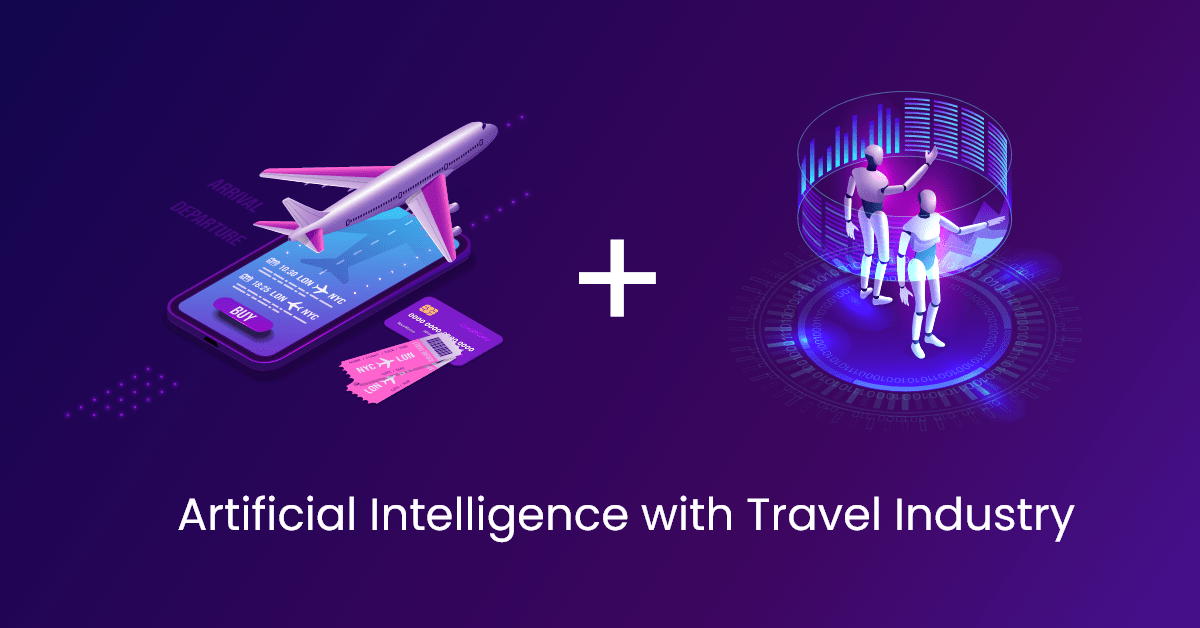Life is full of exciting and rewarding travel experiences. But travel can also bring stress, expense, and hassle. That’s why many travelers want to make their trips easier, cheaper, and more fun and artificial intelligence (AI) can help them do that. Here we will explore how AI is transforming the travel industry.
In this blog post, you will learn how AI is transforming the travel industry, and how you can benefit from it. Whether you are a traveler or a travel business owner, you will find useful insights and tips on how to use AI to enhance your travel experience. Keep reading to learn more!
Artificial Intelligence and Travel:
AI, or artificial intelligence, is the field of computer science that aims to create machines and systems that can perform tasks that normally require human intelligence, such as reasoning, learning, decision making, and natural language processing. AI is used in various domains, such as healthcare, education, entertainment, finance, and transportation, to enhance efficiency, accuracy, and convenience.
The travel industry is one of the largest and fastest-growing sectors in the world, generating over $8 trillion in revenue and supporting over 300 million jobs in 2020. However, the travel industry also faces many challenges, such as changing customer expectations, increasing competition, and environmental impact. AI has the potential to transform the travel industry by providing personalized and seamless experiences for travelers, improving operational and revenue management for travel providers and intermediaries, and enabling data-driven and predictive insights for travel trends and patterns.
The main objective of this article is to explore how AI is transforming the travel industry in three key areas: customized travel planning and online customer service, face-to-face traveler service and identity management, and dynamic pricing and predictive data analytics. The scope of this article is limited to the current and emerging applications of AI for the travel industry, as well as the benefits, challenges, and limitations of AI for the travel industry. This article does not cover the technical details of AI algorithms and models, nor the ethical, legal, and social implications of AI for the travel industry.

AI for customized travel planning and online customer service (How AI is transforming the travel industry)
Traveling can be a rewarding and enriching experience, but it can also be stressful and time-consuming. How do you find the best deals, destinations, and activities that suit your needs and preferences? How can you get the most out of your trip without wasting hours on research and booking? What are the ways to deal with unexpected issues and questions along the way? Artificial intelligence (AI) can help you plan and enjoy your travel with ease and convenience
1.1 AI for customized travel planning
One of the benefits of AI is that it can help you find the best deals, destinations, and activities based on your preferences, budget, and context. AI can analyze large amounts of data from various sources, such as travel websites, social media, reviews, and weather forecasts, and provide you with personalized recommendations and itineraries that match your criteria.
For example, if you want to go on a beach vacation in Europe, AI can suggest the best time to visit, the cheapest flights and hotels, the most popular and hidden beaches, and the best activities and attractions to enjoy. AI can also take into account your travel history, interests, and feedback, and tailor the suggestions accordingly.
Some examples of AI-powered platforms and tools that offer personalized travel planning are:
- TripAdvisor: This is one of the most popular travel websites in the world, with more than 500 million reviews and opinions from travelers. TripAdvisor uses AI to provide you with customized recommendations for hotels, restaurants, and things to do, based on your preferences and ratings. You can also use TripAdvisor to compare prices, book flights, and create your own trip plan.
- Expedia: This is another leading travel website that allows you to search and book flights, hotels, car rentals, and activities. Expedia uses AI to optimize your search results, offer you the best deals and discounts, and suggest alternative options and combinations. You can also use Expedia to create your own travel package and save money.
- Hopper: This is a mobile app that helps you find the best time to book flights and hotels. Hopper uses AI to analyze billions of prices and predict when they will rise or drop. You can also use Hopper to get notified when the prices change, and book your travel with one tap.
1.2 AI for online customer service
Another benefit of AI is that it can enhance your online customer service experience. AI can use natural language processing (NLP) to understand and generate human-like language, and chatbots and voice assistants to interact with you through text or speech. AI can help you with various travel-related queries and tasks, such as checking your flight status, changing your reservation, finding nearby attractions, and getting directions.
For example, if you want to know if your flight is delayed, you can simply ask an AI-powered chatbot or voice assistant, and get an instant and accurate answer. You can also use AI to modify your booking, request a refund, or report a problem, without having to wait for a human agent or fill out a form.
Some examples of AI-powered chatbots and voice assistants that can handle travel-related queries and tasks are:
- Skyscanner: This is a travel search engine that helps you find and compare flights, hotels, and car rentals. Skyscanner has a chatbot that you can access through Facebook Messenger, Skype, or Amazon Alexa. You can use the chatbot to ask questions like “Where can I go for $500?” or “What are the cheapest flights from New York to London?” and get instant and relevant answers.
- Kayak: This is another travel search engine that helps you find and book flights, hotels, car rentals, and activities. Kayak has a chatbot that you can access through Facebook Messenger, Slack, or Google Assistant.
- Google Assistant: This is a virtual assistant that you can access through your smartphone, smart speaker, or smart display. Google Assistant can help you with various travel-related queries and tasks, such as checking your flight status, booking a ride, translating a phrase, or finding nearby restaurants.



AI for face-to-face traveler service and identity management (How AI is transforming the travel industry)
Another aspect of travel that AI can improve is face-to-face traveler service and identity management. AI can use robots, facial recognition, and biometrics to provide travelers with more convenient, efficient, and secure services in airports, hotels, and attractions.
2.1 AI for face-to-face traveler service
One of the ways that AI can improve face-to-face traveler service is by using robots that can interact with travelers through speech, gestures, and emotions. AI-powered robots can assist travelers with various tasks, such as checking in, carrying luggage, providing information, and entertaining guests.
Some examples of AI-powered robots that can assist travelers are:
- Connie: This is a robot concierge that was introduced by Hilton Hotels in 2016. Connie uses AI to answer guests’ questions about the hotel, nearby attractions, and local events. Connie can also learn from each interaction and improve its performance over time.
- Leo: This is a robot baggage handler that was launched by SITA in 2016. Leo can check in travelers’ luggage, print baggage tags, and transport the bags to the baggage handling area. Leo can also communicate with travelers through a touchscreen and a voice interface.
- Pepper: This is a humanoid robot that can recognize human emotions and respond accordingly. Pepper can be found in various airports, hotels, and attractions around the world, such as Tokyo Haneda Airport, Mandarin Oriental Hotel, and Smithsonian Museum. Pepper can help travelers with tasks such as boarding, booking, and guiding.
2.2 AI for identity management
Another way that AI can improve face-to-face traveler service is by using facial recognition and biometrics to facilitate traveler identification, security, and boarding. AI-powered facial recognition and biometrics systems can scan travelers’ faces, irises, fingerprints, or other features, and match them with their identities and travel documents. This can reduce the need for manual checks, queues, and paperwork, and enhance the traveler’s convenience and safety.
Some examples of AI-powered facial recognition and biometrics systems that can facilitate traveler service are:
- Clear: This is a biometric identity platform that allows travelers to use their eyes or face to verify their identity and access expedited security lanes at airports, stadiums, and other venues. Clear is available at more than 50 locations across the US, and has more than 5 million members.
- VeriFLY: This is a digital health passport that allows travelers to upload their COVID-19 test results and vaccination records, and verify their eligibility to travel to certain destinations. VeriFLY is accepted by more than 20 airlines and 30 countries, and has more than 1.5 million users.
- Vision-Box: This is a biometric border control solution that enables travelers to use their face as their boarding pass and passport. Vision-Box is used by more than 80 airports and airlines around the world, and has processed more than 250 million passengers.



AI for dynamic pricing and predictive data analytics (How AI is transforming the travel industry)
Another aspect of travel that AI can improve is dynamic pricing and predictive data analytics. AI can help travel providers and intermediaries optimize their pricing and revenue management strategies, and forecast travel trends and patterns, through machine learning and data mining.
3.1. AI for dynamic pricing
One of the ways that AI can improve dynamic pricing is by using machine learning and data mining to analyze various factors that affect the demand, supply, and competition of travel products and services, such as seasonality, events, weather, customer behavior, and market conditions. AI can then use this information to dynamically adjust the prices and offers of flights, hotels, car rentals, and activities, to maximize the revenue and profit of travel providers and intermediaries, and to provide the best value and satisfaction to travelers.
Some examples of AI-powered platforms and tools that can dynamically adjust prices and offers are:
- Optym: This is a platform that helps airlines optimize their flight schedules, fares, and revenue management. Optym uses AI to forecast demand, simulate scenarios, and generate optimal solutions, based on historical and real-time data. Optym claims to increase the revenue of airlines by up to 12%.
- RateGain: This is a platform that helps hotels, car rentals, and online travel agencies optimize their pricing and distribution strategies. RateGain uses AI to monitor and analyze the prices, availability, and ratings of competitors, and to recommend the best prices and offers, based on the market dynamics and customer preferences. RateGain claims to increase the revenue of its clients by up to 15%.
- Lixar: This is a platform that helps travel intermediaries, such as travel agencies and tour operators, create and sell personalized travel packages. Lixar uses AI to match travelers with the best destinations, flights, hotels, and activities, based on their preferences, budget, and context. Lixar also uses AI to dynamically adjust the prices and offers of the travel packages, based on the demand and supply of the travel market.
3.2 AI for predictive data analytics
Another way that AI can improve predictive data analytics is by using big data and predictive analytics to forecast travel trends and patterns, such as the volume, origin, destination, and behavior of travelers, and the impact of external factors, such as COVID-19, on the travel industry. AI can then use this information to generate insights and recommendations for travel providers and intermediaries, to help them plan and optimize their operations, marketing, and customer service.
Some examples of AI-powered platforms and tools that can generate insights and recommendations are:
- ForwardKeys: This is a platform that helps travel providers and intermediaries understand and anticipate traveler demand and behavior. ForwardKeys uses AI to analyze millions of flight bookings and searches, and to forecast the future travel trends and patterns, such as the top destinations, the most popular travel dates, and the traveler profiles. ForwardKeys also uses AI to measure the impact of events, such as COVID-19, on the travel industry, and to provide recovery scenarios and strategies.
- Amadeus: This is a platform that provides technology solutions for the travel industry, such as reservation systems, distribution networks, and payment services. Amadeus uses AI to process and analyze billions of travel data points, and to generate insights and recommendations for travel providers and intermediaries, to help them improve their performance, efficiency, and customer satisfaction. Amadeus also uses AI to create personalized and relevant offers and experiences for travelers, based on their preferences and behavior.
Conclusion:
This article explores how AI is transforming the travel industry in three key areas: customized travel planning and online customer service, face-to-face traveler service and identity management, and dynamic pricing and predictive data analytics. it discusses the current and emerging applications of AI for the travel industry, as well as the benefits, challenges, and limitations of AI for the travel industry. The article concludes that AI can provide personalized and seamless travel experiences for travelers, and improve operational and revenue performance for travel providers and intermediaries, but also poses some risks and ethical issues that need to be addressed. The article does not cover the technical details of AI algorithms and models, nor the ethical, legal, and social implications of AI for the travel industry.
FAQs
AI could transform travel by helping travelers plan personalized trips and improving travel operations and customer service. For example, ChatGPT is an AI chatbot that can recommend places to go and stay.
To help customers cope with travel disruptions, online travel agencies can use data from various sources, such as real-time weather reports, to anticipate and inform them about possible changes in their travel plans.


hpkkIwMRQliPMWaTfWhmONz